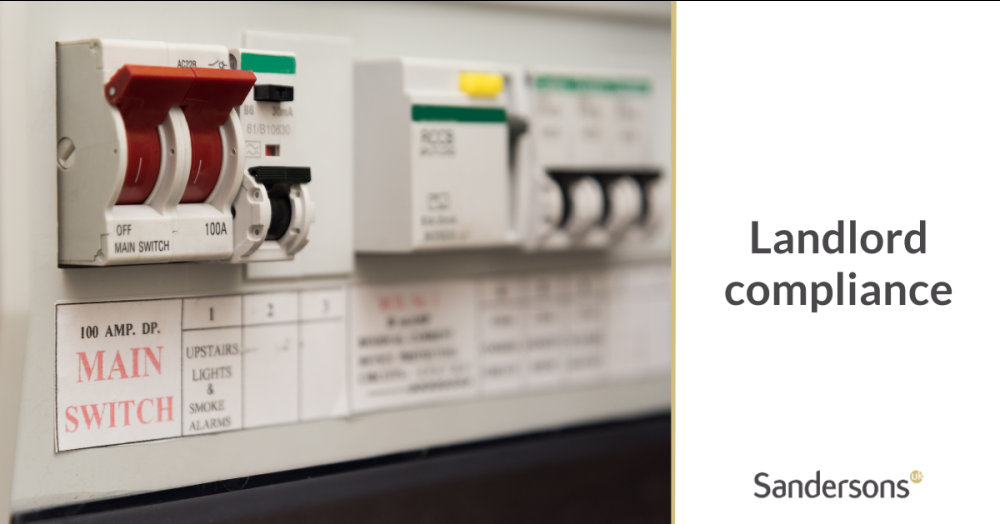
Electrical safety checks in privately rented homes
This month marks five years since the introduction of mandatory electrical testing for rental properties so the next inspections are likely to be due. We’re reflecting on what this means for landlords and how we can help you stay on top of the ever-growing list of compliance requirements.
The importance of electrical testing
Mandatory electrical testing was brought in to ensure the safety of tenants and to reduce the risks associated with faulty wiring or outdated installations. It’s a critical step in protecting both tenants and property investments. However, understanding the nuances of compliance can sometimes feel like navigating a maze. That’s where we come in.
The five-year anniversary: get organised early
With the five-year anniversary of mandatory electrical testing falling this month, many landlords are now due for their second round of inspections. This milestone has led to increased demand for qualified contractors, which means booking inspections may become more challenging. To avoid last-minute stress, we strongly recommend getting organised early.
For landlords already under management with Sandersons, there’s no need to worry. All compliance checks, including electrical testing, are already in hand with our network of reputable contractors. We’ll ensure everything is completed on time and to the highest standard, giving you peace of mind.
Beyond electrical testing: full compliance made easy
Staying compliant doesn’t stop at electrical safety. There are more than 150 pieces of legislation which apply to landlords, the main ones to be mindful of are:
- Gas Safety Checks: Annual gas safety inspections and correct issuing of certificates.
- HHSRS (Housing Health and Safety Rating System): Ensuring your property is free from hazards.
- Smoke and Carbon Monoxide Alarms: Ensuring alarms are correctly installed and maintained as per regulations.
- EPC (Energy Performance Certificates): Keeping certificates up to date and ensuring properties meet the required minimum energy standards.
- Upcoming Renters’ Rights Bill Changes: Keeping abreast of new regulations on the horizon which impact contracts, notices and frequency of rental payments.
- The Deregulation Act: Understanding the requirements for notice validity and deposits.
- Legionella Risk Assessments: Protecting against waterborne risks.
Understanding electrical reports
While electrical testing is required every five years, it’s worth noting that some advisories on an Electrical Installation Condition Report (EICR) don’t necessarily require immediate action. Certain C3 issues may need monitoring or review earlier than the five-year mark, but that doesn’t mean every advisory is an urgent repair. C1 and C2 may need addressing more imminently. Unfortunately, some contractors may pressure landlords into unnecessary work. Our role is to provide you with clarity and guidance to make informed decisions on what is actually necessary and mandatory vs just advisory.
Debunking consumer unit myths
There has been some confusion about consumer units needing to be stainless steel. To clarify, while current regulations specify metal consumer units for new installations from 2016, this does not mean that previously compliant units must be replaced. If your consumer unit met standards at the time of installation, it’s acceptable to keep it in place—despite what rogue electricians might suggest. Ensuring compliance doesn’t have to mean unnecessary expense.
Why choose us?
Navigating property compliance is what we do best. By partnering with us, you benefit from our expertise, proactive management, and commitment to keeping your properties safe, compliant, and tenant-ready. Let us take the stress out of compliance so you can focus on what matters most: managing your investments.
If you have questions or need support with electrical testing or any other compliance requirements, we’re here to help. Together, let’s ensure the next five years are just as smooth as the last.
